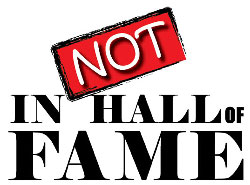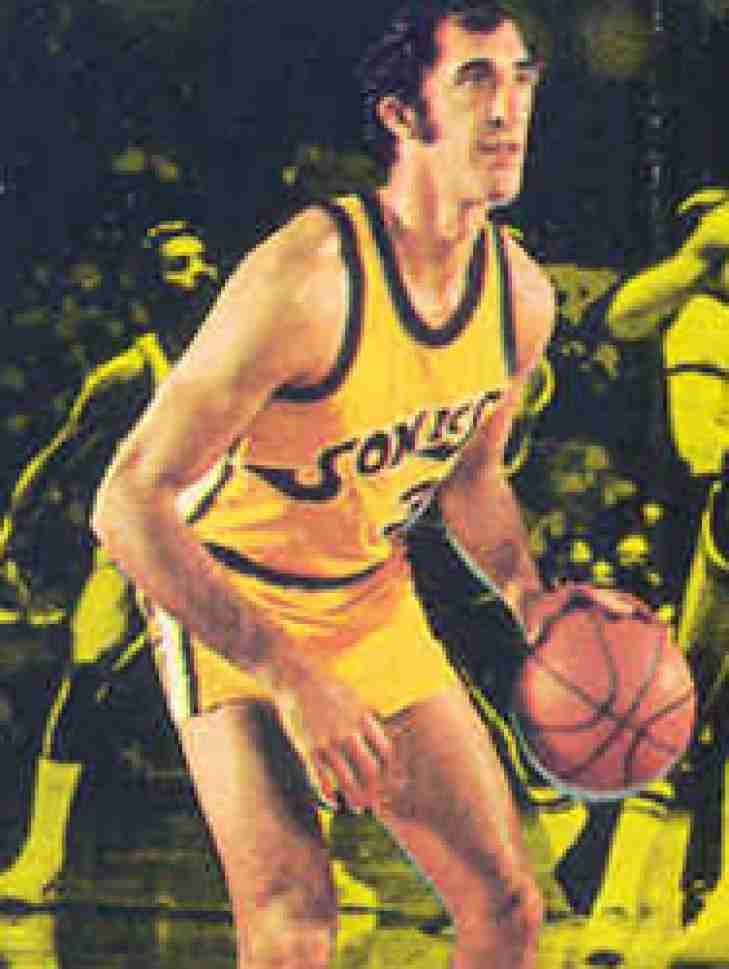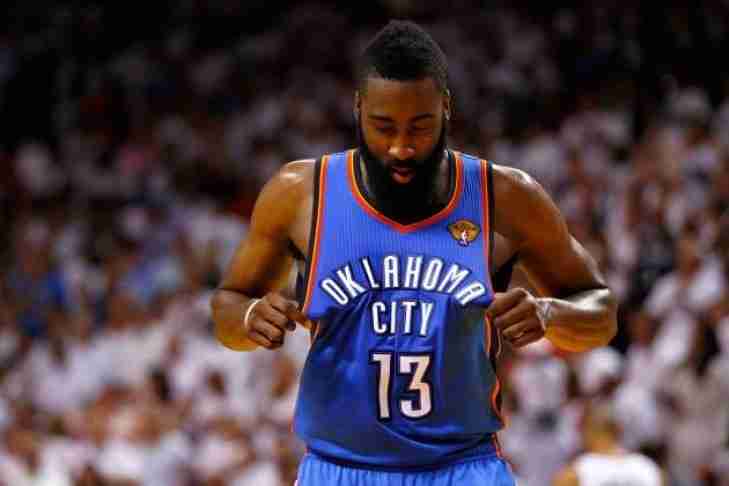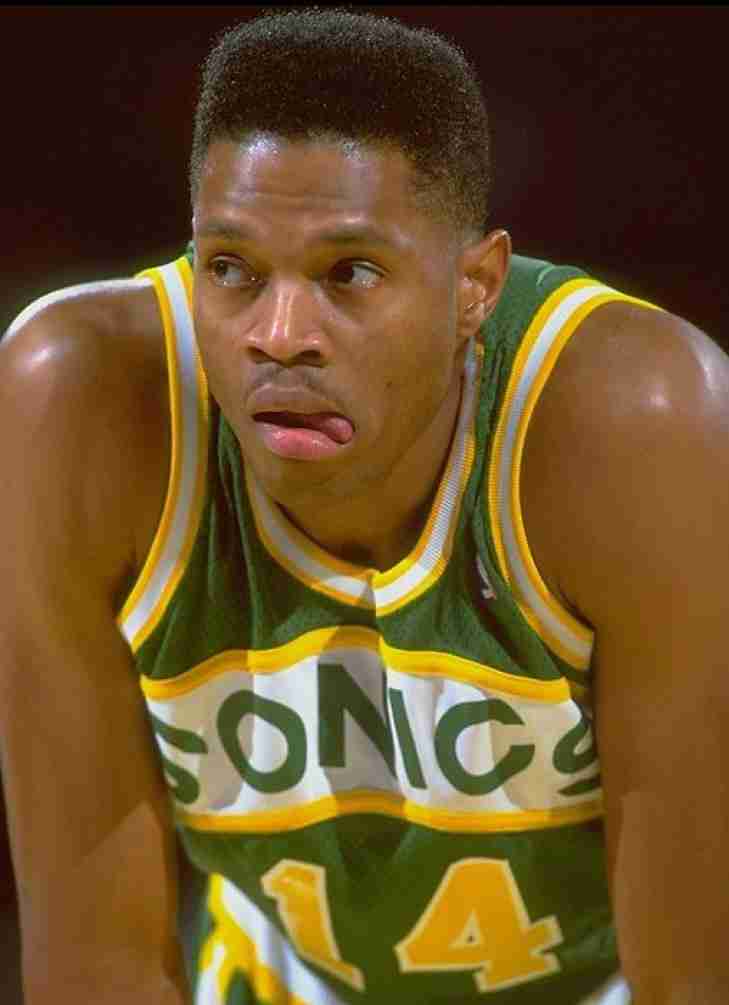32. Enes Kanter
Feb 03, 2017
Published in
Top 50 Oklahoma City Thunder
No, this isn’t a misprint.
Enes Kanter would play 180 Games for the Oklahoma City Thunder, and he was never close to being an All-Star but the Turkish Center has put out the most efficient production of his career while playing in OKC. Kanter’s PERin OKC was 24.1 with a True Shooting Percentage of .612. Also a solid rebounder, Kanter would lead the NBA in 2015/16 in Offensive Rebound Percentage. Kanter was not a starter but the home he found in Oklahoma fits his play perfectly.
Enes Kanter would play 180 Games for the Oklahoma City Thunder, and he was never close to being an All-Star but the Turkish Center has put out the most efficient production of his career while playing in OKC. Kanter’s PERin OKC was 24.1 with a True Shooting Percentage of .612. Also a solid rebounder, Kanter would lead the NBA in 2015/16 in Offensive Rebound Percentage. Kanter was not a starter but the home he found in Oklahoma fits his play perfectly.
39. Sedale Threatt
Feb 03, 2017
Published in
Top 50 Oklahoma City Thunder
A member of the Seattle SuperSonics for three and a half seasons, Sedale Threatt was used mostly off of the bench, though he would take over the starting role in his last season in the Emerald City. Threatt was an underrated player and he finished with a PER of 16.6 as a Sonic, the highest he would do with any team. He would later be traded to the Lakers where he would be their starter and adopt the nickname of “The Thief” for his ability to Steal.
42. Eddie Johnson
Feb 03, 2017
Published in
Top 50 Oklahoma City Thunder
Eddie Johnson was the named the Sixth Man of the Year when he was the Phoenix Suns in 1988-89 and while he was with the SuperSonics for two and a half years he was still a contender for that award. Coming off of the bench for Seattle, Johnson averaged 16.2 Points per Game for the team and in his career he had over 19,000 Points, a number that puts him deep into the all-time list.
40. Antonio Daniels
Feb 03, 2017
Published in
Top 50 Oklahoma City Thunder
Antonio Daniels played for Seattle for two of his thirteen seasons in the NBA, where he was used as a backup Point Guard. It was actually in Seattle where he had has largest PPG (9.7) and had his only 10 Points per Game Season. It is certainly worth noting that his two best PER seasons were with the Sonics, posting numbers of 19.7 ad 18.0 respectively.
36. Jim Fox
Jan 27, 2017
Published in
Top 50 Oklahoma City Thunder
Jim Fox was a journeyman for sure. He began his professional career with Real Madrid in the Spanish League, following it with stints in R.C. Mechelen (Belgium), Cincinnati, Detroit, Phoenix, Chicago (Cincinnati again) before he got to Seattle. He would spend three seasons with the Sonics and while he bounced around as much as a basketball, his first season in Seattle saw him average a double-double and almost did so again in his second season. To this day, Jim Fox still holds the franchise record for rebounds in a game with 30. The journeyman would finish his career with Milwaukee and New York.
43. Tom Meschery
Jan 26, 2017
Published in
Top 50 Oklahoma City Thunder
Born in China to Russian immigrants, Tomislav Mescheryakov would come to the United States as a child, though due to anti-Communist sentiment the family would “Americanize” their names and thus Tom Meschery would emerge as a star At St. Mary’s. Following a very successful run with the Philadelphia/San Francsico Warriors, the brand new Seattle SuperSonics would select him the expansion draft.
38. Ruben Patterson
Jan 26, 2017
Published in
Top 50 Oklahoma City Thunder
Criminally underrated, Ruben Patterson played only two seasons for the Seattle SuperSonics where he had two offensive seasons over eleven Points per Game. In terms of advanced metrics, his best two years were with Seattle, where he had his best season in terms of PER, Win Shares and VORP. Patterson would have a better overall run in Portland, but his best 82 Game run was with Seattle.
35. Vin Baker
Jan 21, 2017
Published in
Top 50 Oklahoma City Thunder
While Vin Baker is one of those players who is often associated with wasting his potential due to substance abuse, the fact remains that this was a very good player who had some good seasons, one of which was with the Seattle SuperSonics.
29. Ricky Pierce
Jan 21, 2017
Published in
Top 50 Oklahoma City Thunder
Arguably the most productive time of Ricky Pierce’s career was the time he spent with the Seattle SuperSonics where he spent the bulk of his time as the starting Shooting Guard. Pierce would be named to his only All Star Team in the year he was traded from Milwaukee to Seattle and would average a very healthy 18.5 Points Per Game tally as a Sonic.
37. Tom Burleson
Jan 21, 2017
Published in
Top 50 Oklahoma City Thunder
Tom Burleson was not in the NBA for long and he only spent three seasons (his first) with the Seattle SuperSonics, however he quietly put together some very good traditional and advanced numbers while he was there. The Center from North Carolina State (he would help the Wolfpack win the NCAA Title) would make the All Rookie Team and in his second year would average 15.6 Points and 9 Rebounds per Game while posting a healthy PER of 16.9. He would also finish in the top ten in Blocks twice. Burleson would be at his best for Seattle in the playoffs where in his fifteen games he averaged 20.7 Points and 10.2 Rebounds per Game.
33. Thabo Sefolosha
Jan 21, 2017
Published in
Top 50 Oklahoma City Thunder
From the nation of Switzerland, Thabo Sefolosha would spend five seasons and change with the Oklahoma City Thunder. Sefolosha was known mostly for his defensive skills putting up good numbers in Steals and was named to a Second Team All Defensive squad for the 2009-10 season. His defense was a nice counter to the offensive minded teammates that he had.
34. Slick Watts
Jan 21, 2017
Published in
Top 50 Oklahoma City Thunder
Earning a shot with the Seattle SuperSonics due to his Xavier Head Coach being the cousin of Sonics Coach, Bill Russell, Donald “Slick” Watts went from undrafted to the National Basketball Association. Watts would eventually become a starter and a defensive star and in the 1975-76 season he would lead the league in Steals and Assists.
30. James Harden
Jan 21, 2017
Published in
Top 50 Oklahoma City Thunder
It seems like a lifetime ago doesn’t it?
James Harden was the third overall pick in the 2009 Draft and the first ever pick for the Oklahoma City Thunder. In his third year, Harden would a beast off of the bench and essentially formed a young “big three” with Kevin Durant and Russell Westbrook. This unit was so good that they took OKC to the NBA Finals and while they lost the 2012 Finals there was reason to believe that this triumvirate would take them to the Finals again and win.
James Harden was the third overall pick in the 2009 Draft and the first ever pick for the Oklahoma City Thunder. In his third year, Harden would a beast off of the bench and essentially formed a young “big three” with Kevin Durant and Russell Westbrook. This unit was so good that they took OKC to the NBA Finals and while they lost the 2012 Finals there was reason to believe that this triumvirate would take them to the Finals again and win.
28. Bob Rule
Jan 21, 2017
Published in
Top 50 Oklahoma City Thunder
One of the first stars of the Seattle SuperSonics, Bob Rule was a scoring machine and the first option in the franchise’s early days. Granted, the team was not very good, but Rule would average a double-double in his four years plus in Seattle, finishing as high 24.6 Points per Game in his final full season with Seattle. He would go to the 1970 All Star Game.
24. Dick Snyder
Jan 21, 2017
Published in
Top 50 Oklahoma City Thunder
Dick Snyder would have the most productive years of his professional career as a member of the Seattle SuperSonics. Snyder would have three seasons where he had over 15 PPG and would later return to Seattle where he would off the bench help them to their only NBA Title. Not a bad way to end your professional career!
21. Dennis Johnson
Jan 21, 2017
Published in
Top 50 Oklahoma City Thunder
Dennis Johnson would take over the starting Shooting Guard role for the Seattle SuperSonics and the super-athletic Johnson would dazzle fans with his dunking and attention to defensive detail. Johnson was not just a huge factor in Seattle’s first NBA Championship; he was named the Finals MVP.
31. Lonnie Shelton
Jan 21, 2017
Published in
Top 50 Oklahoma City Thunder
Lonnie Shelton would lead the NBA in Personal Fouls in his first two years in the league when he was with the New York Knicks, but he had much more control in his third season, where he went to the Seattle SuperSonics and was the starting Power Forward for the 1979 NBA Championship Team. Shelton was very good defensively and would be named to a Second Team All Defensive roster in 1982, which was the same season that he would represent the Sonics in the All Star Game.
23. Sam Perkins
Jan 19, 2017
Published in
Top 50 Oklahoma City Thunder
“Big Smooth”, “Sleepy” Sam Perkins did not arrive to Seattle as the player he once was with Dallas and the Lakers but he was still a very efficient player and would evolve into an excellent bench player for the Sonics. He would provide a veteran presence to a very good Seattle front court and was a key contributor come playoff time.
26. Michael Cage
Jan 19, 2017
Published in
Top 50 Oklahoma City Thunder
Before we talk about the on the court accomplishments of Michael Cage, I absolutely love the fact that his two nicknames are “John Shaft” and the “Windexman”.
Seriously, it doesn’t get much cooler than that.
Seriously, it doesn’t get much cooler than that.
22. Derrick McKey
Jan 19, 2017
Published in
Top 50 Oklahoma City Thunder
Dubbed “Heavy D”, Small Forward, Derrick McKey was considered by many to be a consummate team player. A good defensive player, McKey would put together three straight seasons for the SuperSonics where he averaged over 15 Points per Game. The former SEC Player of the Year was a popular figure in Seattle and loved for his consistent game and while he would be named to a pair of Second Team All-Defensive squads with the Indiana Pacers it was with Seattle where he was at his best offensively.





















